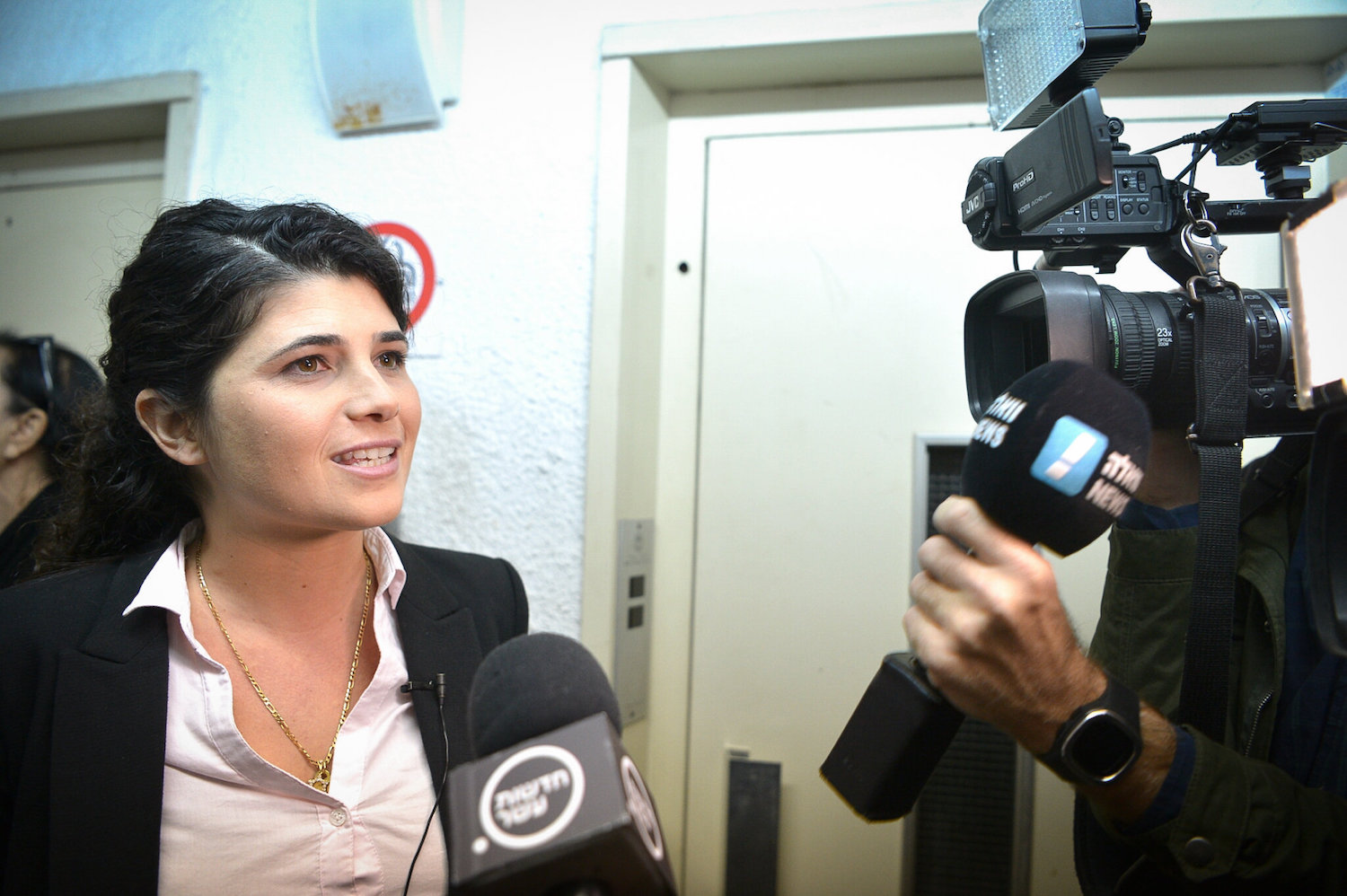On Tuesday, Likud MK Sharren Haskel sparked controversy at an economic conference organized by the Kohelet Policy Forum, a far-right Israeli economic and political think tank.
During a panel on whether the Israeli government should subsidize factories in Israel’s poorer southern region, Haskel suggested that any worker who loses their job after being laid off from a shuttered factory should simply up and move to Tel Aviv. In the big city, Haskel claimed, the unemployed will be able to make a good living by washing dishes for NIS 12,000 ($3,500) a month.
Haskel’s remarks are a new low that reflect just how little wisdom is demanded of Israeli elected leaders today. They are also a testament to something far more dangerous: turning this disconnect from the Israeli public, with all its lack of inhibition and cruelty, into an ideology. Into something to take pride in.
Haskel is not alone. The leaders of Likud, the party most often associated in Israeli political discourse as the party of the “common people,” and particularly lower class Mizrahim, has turned this contemptuous form of disconnect into its own statement of ethics. It is a leadership comprised of people such as Benjamin Netanyahu, a corrupt prime minister who enjoys a lavish life of cigars and champagne, and Nir Barkat — the richest politician in Israel who has no idea how much a loaf of bread or a carton of milk costs. Barkat is Netanyahu’s favorite for finance minister.
Netanyahu and Barkat are only two examples of a powerful, full-throttled attempt to reinforce the wall that separates Israel’s leaders from the common people, and to imbue the former with some peculiar and sublime quality that they use to demand the support of the latter.
One must wonder how a party whose leaders boast about a lifestyle that the vast majority of their voters could only dream of can still maintain its image as the party of the people. This kind of schizophrenia has to a great extent been disastrously enabled by the rising cadre of Mizrahi leaders in the party, including Miri Regev, David Bitan, and Dudu Amsalem. Not only do they worship at the altar of their Ashkenazi benefactor, they also grant Netanyahu a semblance of imaginary Mizrahi authenticity, the kind most often associated with ignorance and vulgarity, and which, by extension, has tragically become associated with Mizrahim writ large.
Neither Likud nor the right were the first to create the link between Mizrahim and vulgarity. All one needs to do is read the protocols of government meetings from the 1950s, when Israeli ministers discussed the immigration of Jews from Arab and Muslim countries, to understand the monstrous worldview into which Mizrahim were molded in this country.
The right, in all its cunning, did nothing to refute this link. Instead, it put a positive spin on vulgarity as the sun began to set on the old Israeli elites. The right did no more than the left to allow Mizrahim to develop themselves educationally or culturally. What it did was offer them a kind of deal, in which the right would embrace them in all their so-called vulgarity and ignorance, and in return the Mizrahim would become Israel’s rising elites. As long, of course, as they kept their loyalty to the right.
This raw deal pays off for both sides. Likud’s Ashkenazi elders ostensibly receive a stamp of approval from “the people,” and the Mizrahim in the party get an entry ticket into the club of Israeli carnage. Israelis love their politics belligerent and without any convictions — to the point that they will continue to support Likud no matter how much the party detests its own voters.

Israelis praise the brutal and murderous belligerence toward Palestinians and applaud the cruelty meted out to refugees and migrant workers. We have turned the admiration of power into such an integral part of our DNA that it is not undermined even when directed at the Israeli public itself.
The Israeli public worships power, aggression, and uninhibited destruction. A random selection of campaigns from the last three election rounds — whether it’s Naftali Bennett kidnapping Palestinian bodies on the Gaza border or Benny Gantz bragging about how many he dead Gazans his bombing campaigns left behind — shows precisely just how profound this adoration for power truly is. If in the past, however, Israelis admired leaders for destroying “the other,” today they admire them for destroying average Israelis just like themselves.
This article was first published in Hebrew on Local Call. Read it here.



